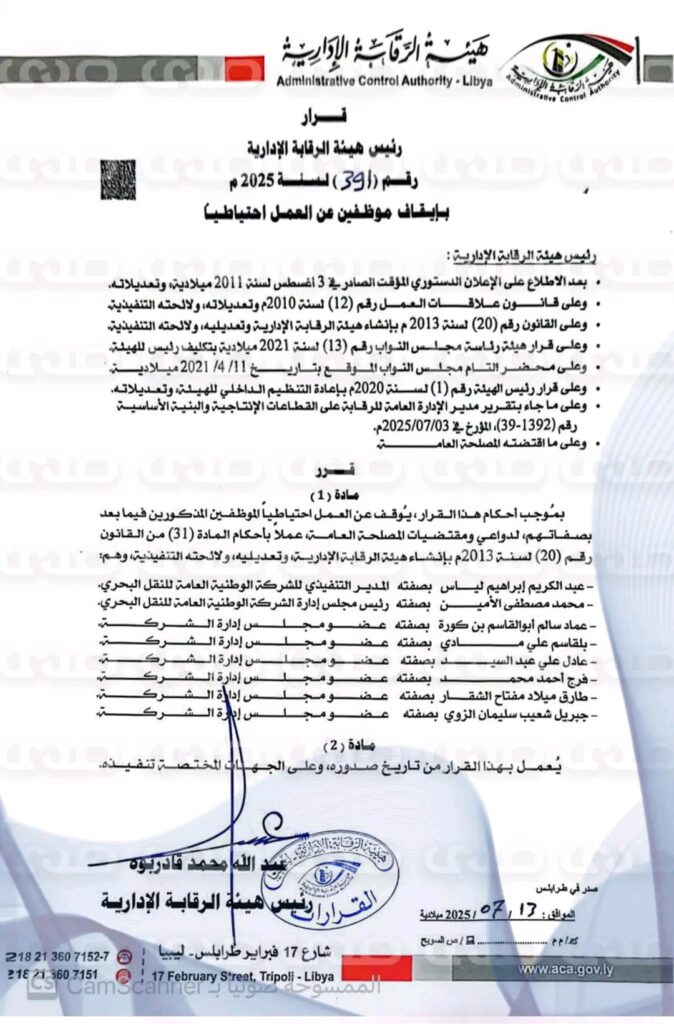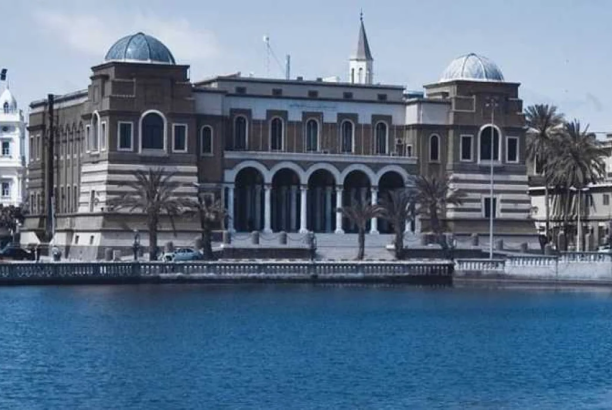
| News
Exclusive: Due to Financial and Administrative Corruption… Oversight Authority Suspends Board of Directors of the National Maritime Transport Company
The Head of the Administrative Control Authority has issued a decision to suspend the Board of Directors of the National Maritime Transport Company.
Our sources exclusively revealed that board members had signed training contracts tainted by corruption, favoritism, and nepotism with institutions in Malta, transferring advance payments in foreign currency to entities unrelated to the maritime transport sector — a first of its kind.
The source added that the board made decisions beyond its authority as defined in the company’s bylaws, usurping the powers of the General Assembly. Examples include — but are not limited to — raising employee bonuses by over 200% of their salaries, granting themselves cash advances despite not being full-time members, increasing expenditures despite current conditions, and purchasing high-priced Toyota Land Cruisers, in violation of General Assembly decisions and contrary to the nature of their work — especially given that the board members are not full-time.
The sources also confirmed unjustified expansion in issuing foreign travel assignments, which did not serve the institution’s interest, including covering travel, mission, and hotel expenses for individuals not affiliated with the company.
Furthermore, the source noted that the board made decisions to open company branches abroad in Malta and the UK, and opened bank accounts for these branches, increasing expenses and wasting public funds through decisions that do not benefit the company.
Sources also indicated that bank accounts were opened with authorized signatures from the chairman and board members, in clear violation of the bylaws, and without the knowledge of the audit department or relevant departments about some of the executed transfers.
The sources concluded by pointing out the board’s failure to follow up on the maritime fleet and tankers, which led to problems and rejections of these tankers in most foreign ports, while the board’s focus remained on foreign travel assignments and increased spending.






